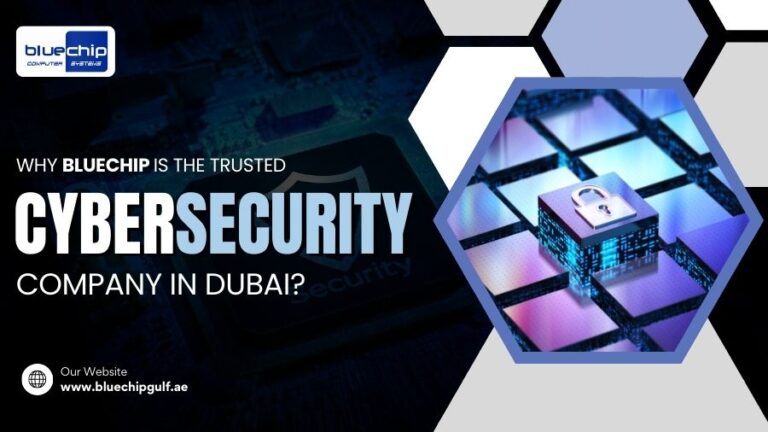
Top 20 Exciting Cybersecurity Trends To Watch Out For In 2025
As we move towards 2025, the field of cybersecurity continues to evolve at an unprecedented pace. With the rise of sophisticated cyber threats, it is crucial for businesses and individuals to stay ahead of emerging trends. For companies operating in dynamic regions like Dubai, partnering with a reliable cyber security company Dubai is more important than ever. Let’s explore 20 key cybersecurity trends to watch out for in 2025.
Table of Contents
List Of The Exciting Cybersecurity Trends
1. Zero Trust Architecture

In cybersecurity, zero trust has emerged as the gold standard. This method demands rigorous identity verification for all users and devices and makes the assumption that attacks can originate from anywhere, both inside and outside the network.
2. AI-Powered Cybersecurity

Cyber threat detection and mitigation are increasingly being aided by artificial intelligence (AI). Large volumes of data may be analyzed by AI systems to find trends and spot irregularities instantly.
3. Advanced Ransomware Defense

The number of ransomware attacks is on the rise, and they are becoming increasingly targeted and refined. Organizations are adopting advanced defense strategies, including immutable backups and real-time threat detection.
4. Cloud Security Enhancement

As businesses increasingly move to the cloud, securing cloud environments is a top priority. Enhanced encryption, access controls, and cloud-native security tools are crucial.
5. IoT Security

The Internet of Things (IoT) continues to grow, but each connected device introduces new vulnerabilities. Cybersecurity solutions are focusing on protecting IoT ecosystems.
6. Quantum Cryptography

As a result of quantum computing, we face a danger to standard encryption techniques. Cybersecurity companies are exploring quantum-resistant cryptography to stay ahead of the curve.
7. Biometric Authentication

Traditional passwords are becoming obsolete. Facial recognition and fingerprint scanning are two biometric authentication techniques that are increasingly being used in system security.
8. Cybersecurity for Remote Work

With remote work now a permanent fixture, securing home networks and remote devices is a priority. VPNs, endpoint protection, and secure collaboration tools are essential.
9. Regulatory Compliance

Governments worldwide are introducing stricter cybersecurity regulations. Businesses must stay compliant to avoid penalties and enhance their security posture.
10. Cyber Insurance

Businesses are purchasing cyber insurance to reduce financial losses and guarantee business continuity as cyberattacks become more common.
11. Threat Intelligence Sharing

Organizations are increasingly working together to exchange threat intelligence, which is bolstering security in a variety of sectors.
12. 5G Network Security

The rollout of 5G networks presents new exposures. Enhanced security measures are necessary to address the risks associated with faster, more connected systems.
13. Decentralized Identity Solutions

Decentralized identity management gives users authority over their personal data, decreasing the dangers related to centralized databases.
14. Managed Detection and Response (MDR)

MDR services provide businesses with 24/7 threat monitoring and incident response, offering an additional layer of security.
15. Social Engineering Awareness

Cybercriminals are using increasingly sophisticated social engineering tactics. Employee training and awareness programs are key to mitigating these risks.
16. Supply Chain Security

Cyberattacks targeting supply chains are on the rise. Businesses are implementing stringent security measures to protect their supply chain ecosystems.
17. Cybersecurity Automation

Automation in cybersecurity reduces human error and accelerates response times. Automated tools are being widely adopted for tasks like vulnerability management and incident response.
18. Mobile Device Security

With mobile devices being a primary target, enhanced security measures such as mobile threat defense (MTD) solutions are gaining traction.
19. Digital Forensics and Incident Response (DFIR)

DFIR services are critical in identifying, containing, and recovering from cyber incidents. Businesses are increasingly relying on experts for post-attack analysis.
20. Focus on Small and Medium Enterprises (SMEs)

Cybersecurity solutions tailored for SMEs are gaining prominence, as these businesses often lack the resources for comprehensive in-house security.
Why Partner with a Cyber Security Company in Dubai?

Dubai is a hub for global businesses, making it a premium target for cyber dangers. A trusted cyber security company, Dubai offers localized expertise and top-notch solutions to fulfill the exceptional demands of businesses in the region. Whether it’s protecting sensitive data, ensuring regulatory compliance, or safeguarding against sophisticated attacks, these companies provide the necessary tools and expertise to keep your business secure.
Conclusion
Because the cybersecurity landscape is ever-evolving, it is critical for both individuals and corporations, like Bluechip Dubai, to keep ahead of new trends. You may better prepare for the difficulties of 2025 and beyond by being aware of these 20 trends. For businesses in Dubai, partnering with a reputable cyber security company Dubai is a strategic move to ensure robust protection and long-term success.
Also Read: Expert IT Support And Maintenance Services In Dubai








